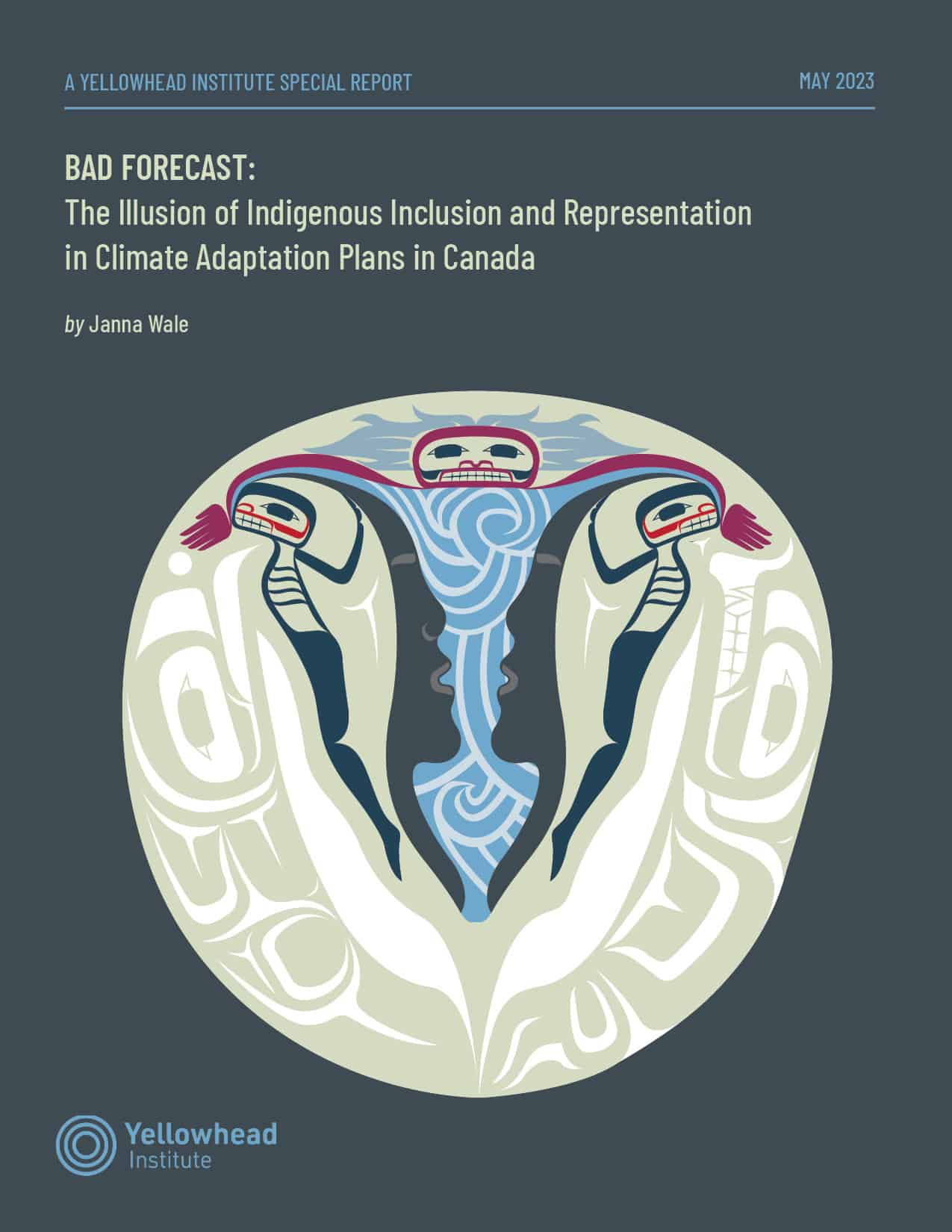- About
- Research
-
-
- Special Reports & Features
- Braiding Accountability: A Ten-Year Review of the TRC’s Healthcare Calls to Action
- Buried Burdens: The True Costs of Liquified Natural Gas (LNG) Ownership
- Pretendians and Publications: The Problem and Solutions to Redface Research
- Pinasunniq: Reflections on a Northern Indigenous Economy
- From Risk to Resilience: Indigenous Alternatives to Climate Risk Assessment in Canada
- Twenty-Five Years of Gladue: Indigenous ‘Over-Incarceration’ & the Failure of the Criminal Justice System on the Grand River
- Calls to Action Accountability: A 2023 Status Update on Reconciliation
- View all reports.
- Special Reports & Features
-
-
- Yellowhead School
-
- The Treaty Map
- LIBRARY
- Submissions
- Donate
In recent years, there has been increasing recognition of the importance of Indigenous knowledge in responding and adapting to climate change.
In 2022, Environment and Climate Change Canada’s ECCC) released Canada’s first ever National Adaptation Strategy (NAS) and National Action Plan (NAP), which present a landmark opportunity for Indigenous people to contribute to and lead climate action and adaptation in Canada. And, yet, there are significant shortcomings with the approach: failing to include Indigenous rights holders directly, excluding a genuine gender framework, and distilling and making processes (or lack thereof), and the impacts of this historic and ongoing exclusion.
KEY QUESTIONS
- How are Indigenous peoples’ excluded from federal climate adaptation decision-making processes?
- What are the impacts of historic and ongoing exclusion from environmental decision making?
...when decisions related to climate policy are made by the same people using the same knowledge systems and predisposition towards extraction that has fuelled the climate crisis in the first place, how can we expect different outcomes?
- Janna Wale

